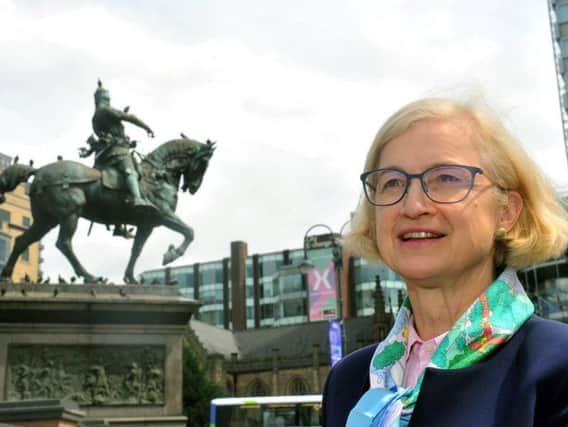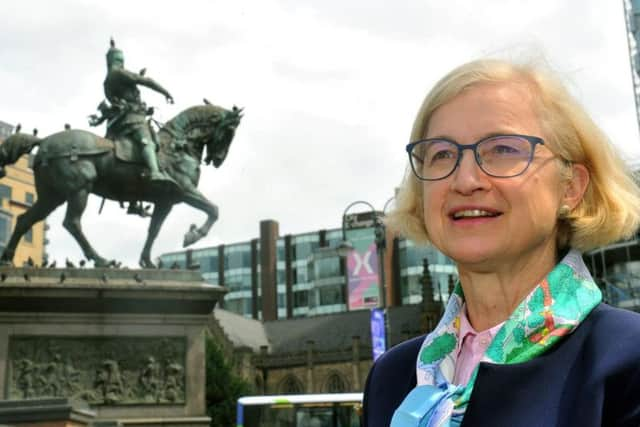Ofsted chief Amanda Spielman: ‘Schools missing big chunks out of the national curriculum is a worry’


Amanda Spielman admitted it was “a worry” that some schools chose not to teach important topics while in Leeds yesterday to help introduce a new framework for schools inspectors.
She maintained schools should be empowered to teach as they see fit and not be forced into models of teaching which may not suit them.


Advertisement
Hide AdAdvertisement
Hide Ad“We give schools an enormous amount of leeway in this country decide what they teach and how they teach.
“And what we found, particularly in primary schools, is that a lot are essentially not covering big chunks of the national curriculum - that is the default expectation that everybody should get - and choosing to leave pieces out in order to put more time into maths and English.
“This new framework will look much harder at the choices that schools make and expect some pretty strong justifications as to why they would not give children those things we’ve defined as the core expectation that every everybody should have.”
Ofsted’s framework is working for “clarity and consistency” within individual schools rather than across the UK.
Advertisement
Hide AdAdvertisement
Hide AdMs Spielman said: “We know that teachers feel it’s really hard work to be in a school where there isn’t consistency, or where they’re not well supported.
“And with behaviour, especially perhaps for secondary education which is undoubtedly a challenge, making sure that the job that teachers have to do to help all children get to the right place is as doable as it should be.
“There’s no point making the job harder. Having the kinds of systems that help all teachers have the space and time they need to teach really well, we know that’s good for schools.”
Earlier this year, Ofsted faced criticism for giving “outstanding” ratings to schools which did not offer provisions for special educational needs pupils.
Advertisement
Hide AdAdvertisement
Hide AdParents say there are still far too many schools where children do not get the support they need.
In 2018, there were 2,060 children who had no support, despite having education, health and care plans setting out their needs.
Teachers have blamed funding cuts for the lack of support.
A Department for Education study last month found 38 of 60 schools asked have either cut the number of teaching assistants in the past two to three years, or are planning to, with funding cited as the reason on virtually every case.
Spending on schools and colleges had dropped by £7.7bn, from £95.5bn in 2011/12 to £87.8bn last year in real terms, research by the Commons Library found.
Advertisement
Hide AdAdvertisement
Hide AdMs Spielman said there was always a requirement from Ofsted to cater for special education needs pupils and nothing has changed.
“It’s something that’s always been there. But the important thing to remember is an inspection is an overview of a school taken in the round. It’s not a series of hurdles that, if you’re not perfect on any one hurdle, you fall over.”
She urged parents to inform themselves by looking at Ofsted reports when making decisions about their children’s schools.
